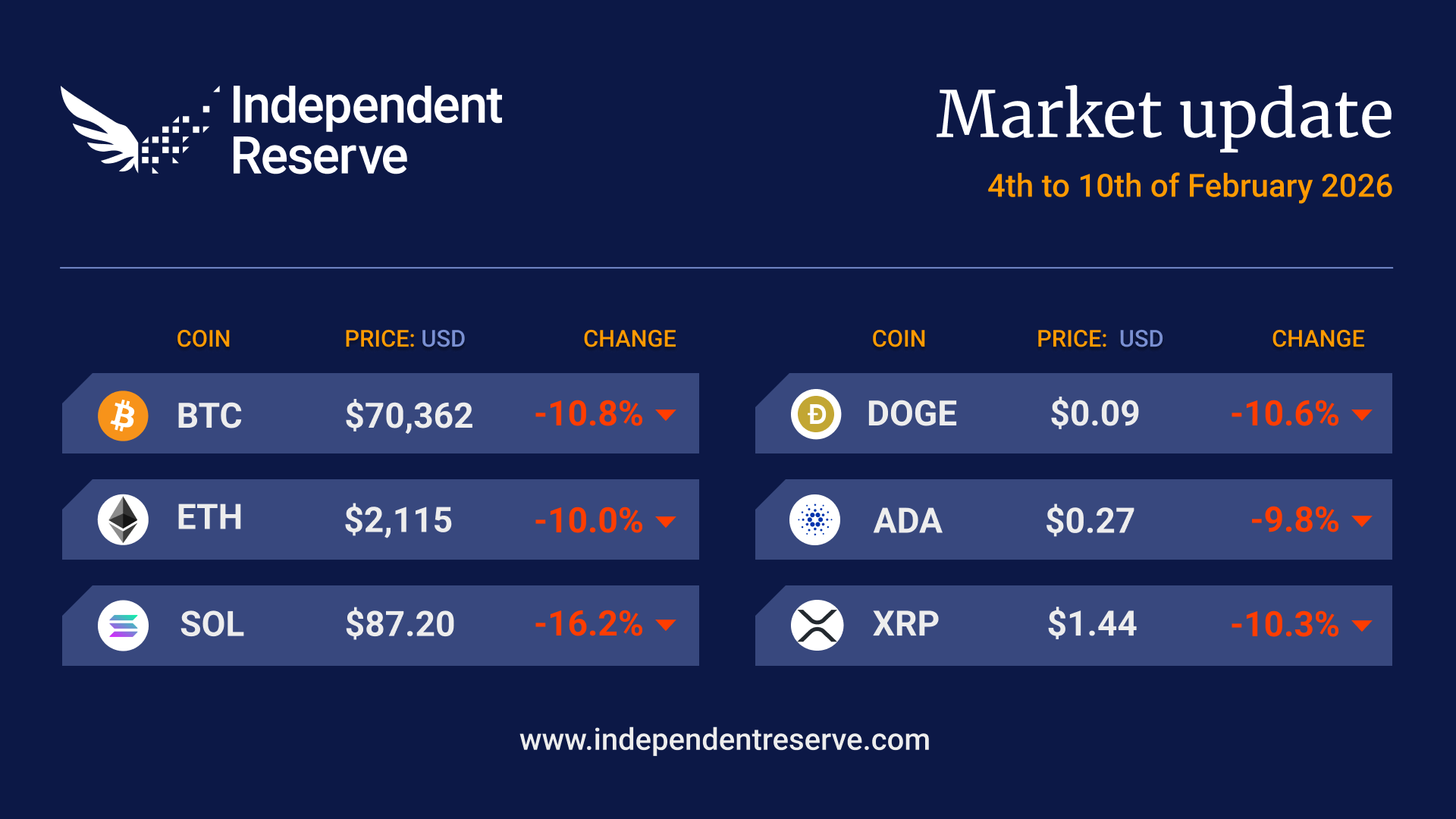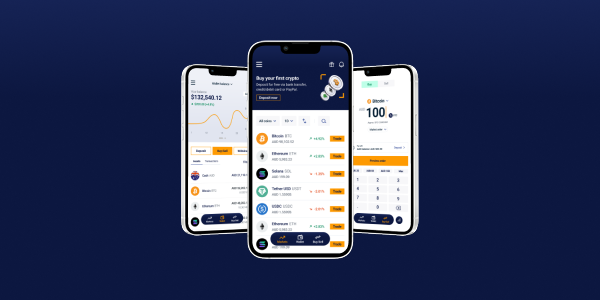How long does bitcoin take to transfer?
Bitcoin transactions can take 10 minutes, hours, days or maybe weeks. Due to the mining process, there can be delays, as miners must confirm the Bitcoin transfers which causes delay on the network from moment to moment (more on this later). But before all that, you may be wondering: how do you transfer Bitcoin?
How to transfer Bitcoin?
Once you buy bitcoin in Australia, you will probably want to transfer it to a wallet, or send your BTC to another person. Transferring Bitcoin is unlike transferring any other kind of currency, namely because it does not have any physical form, and is unregulated and not bound by any specific countries’ laws.
To transfer Bitcoin you must input your digital code which has a record of all previous transaction and digital signatures, known as the private key, the amount of Bitcoin you wish to transfer, and the address, known as the public key.
What does the transfer of Bitcoin entail?
Bitcoin is transferred and confirmed via public ledgers on the Bitcoin network called blockchains.
When you hit “send” in your Bitcoin wallet, you’re instructing your wallet to digitally encode a “transaction message” transferring a certain amount of Bitcoin from your address to another address. The information is bundled together into a small file and broadcast to other computers (known as nodes) for verification.
Once pending transactions are verified, they are stored in the “mempool” (short for memory pool), and passed through to other nodes which repeat the process.
In order for transactions to be confirmed, Bitcoin miners have to group transactions together into a “block” and then compete to get that chain into the Blockchain. Once the block enters the Blockchain, those bitcoin transaction confirmations are finalised.
How long does it take to transfer bitcoin?
usually take an average time of between 10 Bitcoin transaction confirmation and 20 minutes, however they can also take anywhere from a couple of seconds to over an hour (and in some cases, even longer) depending on certain factors and circumstances. Because Bitcoin transactions are conducted and approved entirely through the process of data mining , it is influenced heavily by technology, network speed, bitcoin transaction fees, user compliance (and error), pending time, and other factors. All of these can either culminate in quick transfer speeds, or slow ones.
Why do Bitcoin transfers take so long?
This is the big question, and one that keeps coming up for newbies eager to spend and trade with cryptocurrency. You may not be an expert in Bitcoin (yet), but it is likely that you are well-versed on how inconsistent and disruptable technological processes can be. The mining procedure that powers these crypto transactions requires technology and integrated action between users. As such, there are several factors that affect transfer time, which include the company, coin type, and exchanges you use, to transaction fees, network congestion and even destination service.
Type of coins and how many
The bitcoin transaction takes varying time will depend on the bitcoin network you’re using. For instance, Bitcoin block confirmation takes about ten minutes on average, while Ethereum can be as quick as 15 seconds. The cryptocurrencies with the fastest confirmation approval speeds are:
- XRP
- EOS
- Ethereum
- NEO
- Dash
If you’re interested in learning more about different cryptocurrencies (whether its for transfer speeds or economic security), check out this article on diversifying your crypto portfolio.
Different exchanges
As with different coins, different exchange companies operate differently. For instance, different BTC exchanges require different numbers of block confirmations before the block is added to the blockchain and transactions can be confirmed. For instance, Binance needs one block confirmation for deposits, while Coinbase needs three block confirmations before a transaction is finalised.
Fees
Bitcoin miners will almost always work for the highest transaction fees, so if you want to transfer bitcoins for a lower transaction fees, be prepared to wait a little longer. They will get around to you, but your job will not have transaction priority if you’re trying to save money on fees. It is simple… Pay a high enough transaction fee, and you will likely encounter a fast transaction.
Network congestion
Cryptocurrency runs exclusively through independent technological processes (that is kind of the point), and as such, these processes can be subject to network congestion, leading to slower network speed and slower transfer times. The best way to navigate this is to use a block explorer program to see when the servers are least busy, and do your transfers then.
Destination service
The strength and speed of your signal will usually depend on your destination, which could impact how quickly you receive or send your coins. Like exchanges, different areas may use different processes for transactions. They may need more or less block chains before confirmation, may refresh the system more or less often, or could be down for maintenance (or just out of power, depending on where in the world you’re sending/receiving).
Can we transfer Bitcoin faster?
We all want things to be faster and more efficient, but unfortunately there are only two things you can do to increase your transaction speed (although there may be some exciting, speedy solutions on the horizon, like ones provided by companies like Lightning Network).
- Increase your transaction fee to jump the queue: Miners are greedy devils, and they will generally work on transactions with the biggest fee. As such, it is quite easy to get them to work on yours first: Just offer more money!
- Use a block explorer to avoid transferring at peak times: Block explorers can be used to see when unconfirmed transactions are at the lowest levels, which allows you to choose the best transaction times to avoid congestion, and the inescapable slow speeds that come with it.
Will Bitcoin transfer times be faster in the future?
Bitcoin’s slow blockchain-based system has concerned its users and its investors, particularly in terms of scalability. As such, there will be concerted efforts to address the relatively slow-moving process moving forward. However, there is just no way to know exactly how that will happen, or what it will entail. One temporary solution has been Bitcoin Cash, which does provide faster transactions, but is unlikely to compete globally in the long term due to its limitation to its own currency and its limited scalability. Another solution has been off-chain networks like Lightning Network, which utilise “lightning nodes” which act as a Bitcoin reserve which you can transfer from (to other people connected via the lightning node). Unfortunately, this too is only applicable for Bitcoin and it requires a little more technological know-how.
Conclusion
Cryptocurrency is an experiment in innovation, and as such, the industry will continue to make rapid improvements to its own processes as it continues to evolve and as needs develop. The inconsistent and unpredictable timing of Bitcoin transactions and confirmations has been a consistent thorn in the side of Bitcoin users, which means that companies, exchanges and miners are all working on solutions to the problem, in order to provide customers with an efficient service, and to validate and improve on cryptocurrency as a viable and sustainable alternative currency.



